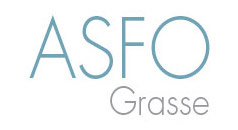Fragrances Regulation
The Fragrance Regulation course covers a number of essential aspects. Firstly, it explores fragrance substances and mixtures based on the ISO9235 definition and detailing the procurement process.
Next, risk management is examined, followed by an overview of the global regulatory framework, highlighting the requirements and professional organisations involved.
IFRA’s professional recommendations, such as the Code of Practice and Standards, as well as the QRA methodology, are also covered.
In addition, the course covers the European regulatory framework, including chemical regulations such as REACH and CLP, sector-specific regulations such as in the case of cosmetics, and finally explores strategies for sustainable chemistry.
05 October 2026 to 12 October 2026 – 2 sessions of 3.5 hours from 1.30pm to 5 pm – Duration of 7 hours – 708,00 € TTC
Flavors Regulation
Flavors regulation. Level 1
The Flavors Regulation Level 1 course focuses on the operational basics of EU regulation.
It includes an introduction to the SNIAA and the flavors industry, as well as a brief introduction to general food regulation.
The regulation of food ingredients is also covered, focusing on general aspects.
In addition, flavors regulations are detailed, covering definitions, safety requirements and B2B flavour labelling, including data sheets. Practical exercises are also provided to reinforce understanding of the topics covered.
From 02 June 2026 to 09 June 2026 – 2 half days from 1pm to 4.30pm – Duration of 7 hours – 708,00 € TTC
Flavors regulation. Level 2
The Flavors Regulation Level 2 course provides an in-depth approach to the regulation of flavors in the EU and internationally. Participants must have completed Level 1 or have equivalent experience.
The course includes an introduction to the SNIAA and the flavors industry, followed by EU food law requirements, additives and flavors regulations, as well as recommendations from the EU and the DGCCRF in France. Specific situations such as vanilla flavorings, borderline cases and flavorings for organic products are also covered.
Participants will also be familiarised with the ‘EFFA Guide to the Regulation of Flavorings and its annexes, as well as the additional provisions applicable to flavorings.
The requirements of other countries such as North America, Asia and others, as well as international non-binding reference documents such as the Codex Alimentarius and JECFA opinions will also be explored. In addition, voluntary reference documents such as the IOFI Code of Practice, ethical and religious rules will be discussed for a thorough understanding of flavors regulation on an international scale.
16 June 2026 to 30 June 2026 – 3 half days from 1pm to 4.30pm – Duration of 10.5 hours – 1 068,00 € TTC
Cosmetics Regulation
The training on cosmetics regulation starts with the basics, including the definition of a regulation, an overview of requirements, the global regulatory framework, as well as stakeholders and competent authorities.
It then looks at cosmetic products with a focus on the principle of safety and quality, definitions and classifications, as well as a summary of regulatory texts by territory and technical lists of ingredients by territory.
The course also covers the labelling of cosmetic ingredients. Finally, it explores the marketing of cosmetics, covering the players involved, general considerations and procedures such as notification, registration and certification.
